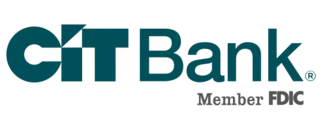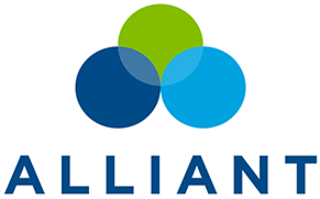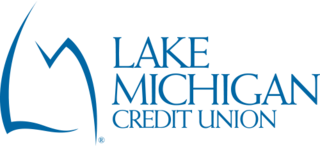Best Credit Unions for 2026
Credit unions are the financial backbone of many communities. Their localized nature means they understand the needs of customers, and because members are partial owners of credit unions, the institutions can offer benefits that large national banks cannot.
They often boast higher annual percentage yields (APYs) and lower fees than traditional banks, making them a good option if you're shopping for a new account. In the U.S., there are over 4,400 federally-insured credit unions. Although some serve customers nationwide, many credit unions are more limited, working only with consumers in certain geographic areas or who work for particular employers.
To help you find the best credit union for your needs, we researched the top credit unions in the U.S. based on their consolidated assets, account options, fees, rates and customer service to identify the top seven credit unions for 2026:
- Alliant – Best Overall
- Navy Federal Credit Union – Best for Members of the Military
- Golden1 Credit Union – Best for Seniors
- GreenState Credit Union – Best for Rewards
- America First – Best for Membership Perks
- Mountain America Credit Union – Best for Innovation
- Lake Michigan – Best for Share Certificates
*Rates and APYs are subject to change. All information provided was accurate as of Oct. 14, 2025.
For those who need an added incentive to save, Alliant Credit Union's Ultimate Opportunity Savings Account is a great option. If you deposit $100 into your account every month for 12 consecutive months (while maintaining an average daily minimum balance of $100 and a balance of $1,200 at year's end), Alliant will give you a $100 bonus reward. It is one of the few credit unions that serves customers nationwide; anyone can join, regardless of their location or employment.
The credit union offers savings accounts and share certificates with higher-than-usual APYs (currently up to 4.15% on share certificates), and it even has an interest-bearing checking account. Customers can use any Alliant's 80,000 in-network ATMs, but the credit union also provides $20 per month in ATM fee reimbursement for out-of-network locations. Alliant doesn't charge monthly fees, overdraft fees or require minimum balances. However, it doesn't operate any physical locations, which can be inconvenient if you prefer to visit a branch in person to complete your banking tasks. If you want paper statements, you'll have to pay an added fee, and the credit union has a $1,000 minimum requirement for its share certificates.
- Available nationwide
- $100 savings award
- Offers interest-bearing checking accounts
- Lower customer satisfaction ratings
- No physical branches
- Paper statement fees
For the second year in a row, Navy Federal Credit Union (NFCC) is Money's pick for the best credit union for military members, veterans or qualified family members. NFCC offers accounts with low fees and higher-than-average APYs on money market accounts and share certificates. Those who qualify for NFCC membership can take advantage of the credit union's interest-bearing checking accounts, and the NFCC is also notable for its exceptional customer satisfaction ratings; on TrustPilot, it has a 4.5 out of 5 rating based on nearly 44,000 reviews — a stellar rating.
Unfortunately, not everyone will be eligible for membership with the NFCC. If you aren't a service member, veteran or the family member of a qualifying member, you'll have to work with another credit union.
- Interest-bearing checking accounts
- Higher-than-average APY on share certificates and money market accounts
- Exceptional customer satisfaction ratings
- Limited membership eligibility
- Low APY on savings accounts
Another repeat winner, Golden 1 offers customers a variety of banking products, including free checking accounts, interest-bearing checking accounts, high-yield savings accounts and share certificates — the credit union equivalent of a certificate of deposit (CD). It boasts low fees and higher-than-usual APYs, and members can qualify for other perks like special discounts on tickets for sports events.
The credit union's Golden Prestige Checking, available to customers 62 and older, has no monthly maintenance fee, no per-check charges and offers two free boxes of custom checks each year. Additionally, that account includes up to 10 free cashier's checks per month, free domestic money wire transfer service and free notary services. However, Golden 1's membership isn't open to the general public. It primarily serves people who live or work in California. You may be able to join if you work for an eligible employer or have a family member who is a current member; otherwise, you're ineligible for membership.
- Free services for those 62 or older
- Free checking options
- High-yield share certificates
- Limited membership requirements
- Monthly fees apply to interest-bearing checking accounts
For those who need an added incentive to save, GreenState Credit Union Money's top pick. The financial institutions serves more than 400,000 members across 33 branches while maintaining a network of 30,000 surcharge-free ATMs. It doesn't have monthly maintenance fees and it doesn't require minimum balances. But what's particularly attractive about the credit union is its rewards programs.
GreenState's GrowGreen Checking account currently offers a 4.00% APY on balances up to $19,999. Its Platinum Rewards Mastercard allows members to earn 3x points on gas and 2x points on groceries, while its World Mastercard allows members to earn 5x points on hotels and airlines and 2x points on gas. However, the credit union only has a presence in five states and in order to become a member, you must live or work in Iowa or select counties in Illinois, Wisconsin, Nebraska or South Dakota, have a family member who is a member or have an affiliation with a specific employer, community or organization.
- Up to $1,000 per year in checking account bonus dividends
- No monthly maintenance fees or minimum balance requirements
- Offers mortgages and auto loans
- Membership only valid to those living or working in five states
- Some members report online payment system difficulty
With $21.7 billion in consolidated assets, America First Credit Union (AFCU) is the largest winner on Money's list. The credit union offers members attractive perks. Those include exclusive discounts on travel, entertainment and services through TurboTax and Sam's Club. Additionally, members can receive cash back, mobile phone protection and identity protection services with a Premium Checking account.
However, membership with AFCU is limited to those living or working in Utah, having a family or household connection to an existing members or being affiliated with a select employer group or association. The credit union receives a relatively low TrustPilot score, but that rating is based on fewer than 40 reviews. AFCU also has a $1,000 minimum requirement for its share certificates.
- Discounts on travel, entertainment and services
- Cash back, mobile phone protection and identity protection
- Competitive APYs for share certificates
- Membership limited to those living or working in Utah
- Outdated digital services
- $1,000 minimum for share certificates
Mountain America Credit Union (MACU) offers a range of checking and savings accounts, including options for kids and teens. Its savings, money market and share certificate accounts boast high APYs, and its share certificates have lower-than-usual deposit minimums. Some of its accounts, such as the MyStyle Checking account, have monthly fees, and membership isn't available to the general public. To become a member, you must live in a qualifying county in Utah, work for a qualifying employer or have a relative who is a current member.
Where the credit union differentiates itself is through innovation. MACU is embracing the digital transformation, leveraging technologies to improve member experiences. It employs the Alloy platform to help simplify and accelerate member onboarding and account opening processes. It also offers secure and cutting-edge mobile banking technology — a feature many credit unions fail to deliver to an increasingly digital customer base.
- Added protections and services with a checking account
- Youth and teen savings accounts
- Low deposit requirement for share certificates
- May have a monthly fee
- Limited membership
When it comes to finding the best APYs for share certificates, it's had to beat Lake Michigan Credit Union (LMCU). Despite operating in just two states, the institution boasts $14.5 billion in consolidated assets and a network of 55,000 ATMs. LMCU offers student- and senior-focused accounts. Its share certificates currently offer APYs up to 4.30%, and the credit union's money market accounts currently offer an APY of 4.05%.
However, LMCU share certificates require a minimum purchase deposit of $1,000. Additionally, membership is restricted to those living, working or worshiping in Michigan's lower peninsula or Florida, those who are immediate family members of existing members, or for some applications, those who make a $5 donation to the ALS Association.
- Superior APYs for share certificates
- Offers student and senior accounts
- Rated #1 in the nation for member value by Callahan & Associates
- Minimum deposit of $1,000 for share certificates
- Membership restricted to those living, working or worshiping in just two states
How we chose the Best Banks of 2026
To determine our list of Best Banks for 2026, Money evaluated hundreds of the largest retail banks, credit unions, regional and state banks, ranked by assets, and dozens of the most popular online banks. To identify the best credit unions of 2025-2026, we researched more than 20 top credit unions based on their consolidated assets. We evaluated each credit union based on their deposit account options, APYs, deposit requirements, fees and added benefits. We also considered customer satisfaction ratings and membership requirements to select the top credit unions. You can read our full methodology here.














